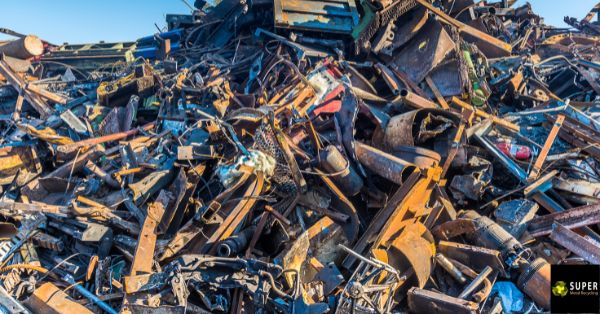Introduction
In the bustling city of Melbourne, where innovation and sustainability go hand in hand, scrap metal recycling is more than just a practice; it’s a way of life. The process of recycling scrap metals contributes to the city’s economic growth, environmental well-being, and resource conservation. In this blog, we will explore the fundamental principles of recycling scrap metals in Melbourne, a practice that is not only environmentally responsible but also a significant economic driver.
1. Collection and Sorting
Scrap metal recycling in Melbourne starts with the collection and sorting of materials. Individuals, businesses, and scrap yards collect a wide range of metal items, including steel, aluminum, copper, and more. Sorting is crucial to separate the various types of metals, as different metals have distinct properties and recycling processes.
2. Environmental Impact Reduction
Recycling scrap metals significantly reduces the environmental impact of metal production. Mining and refining raw metals from ores are energy-intensive processes that can result in deforestation, habitat destruction, and pollution. By recycling, Melbourne minimizes the need for these processes, conserving natural resources and reducing pollution.
3. Energy Savings
The recycling of scrap metals in Melbourne is an energy-efficient alternative to extracting and refining raw metals. It requires significantly less energy to melt and process recycled metals compared to producing new metal from ores. This energy-saving aspect contributes to reduced greenhouse gas emissions and a smaller carbon footprint.
4. Economic Benefits
Scrap metal recycling is a vital part of Melbourne’s economy. It creates jobs at various levels, from collectors and sorters to processors and manufacturers. The industry also offers opportunities for entrepreneurship and small business growth, contributing to Melbourne’s economic vitality.
5. Responsible Waste Management
Recycling scrap metals is a responsible way to manage waste materials. Improper disposal of metal waste can lead to environmental pollution and health hazards. By recycling, Melbourne ensures that these materials are managed safely, preventing harm to the environment and the community.
6. Resource Conservation
Metals are finite resources, and recycling is a sustainable way to conserve them. Instead of depleting limited natural reserves, Melbourne relies on the recycling of scrap metals to meet the demand for new metal products. This contributes to long-term resource availability.
7. Circular Economy
Scrap metal recycling plays a crucial role in the circular economy. Melbourne is transitioning from a linear “take, make, dispose” model to a circular one where materials are continuously reused, refurbished, and recycled. This shift minimizes waste and fosters a sustainable approach to resource management.
8. Market Value
Scrap metals have intrinsic market value, and their prices fluctuate based on supply and demand. Melbourne’s recycling industry creates a dynamic market for scrap metals, allowing individuals and businesses to earn income from their recyclables.
Conclusion
Understanding the fundamentals of recycling scrap metals in Melbourne unveils a world of benefits. From reducing environmental impact and conserving energy to promoting economic growth and responsible waste management, scrap metal recycling is an integral part of Melbourne’s sustainable future. By embracing this practice, individuals and businesses in Melbourne actively contribute to the city’s progress and the well-being of the planet. So, the next time you think about tossing that old piece of metal, consider the transformative power of recycling and the positive impact it has on Melbourne’s dynamic landscape.
If you are at Botanic Ridge, Victoria 3977, below is the best way to visit us.
Super Metal Recycling
345 Frankston – Dandenong Road, Dandenong South VIC 3175
(03) 9706 4909
* Find us on Google Map


Recent Comments